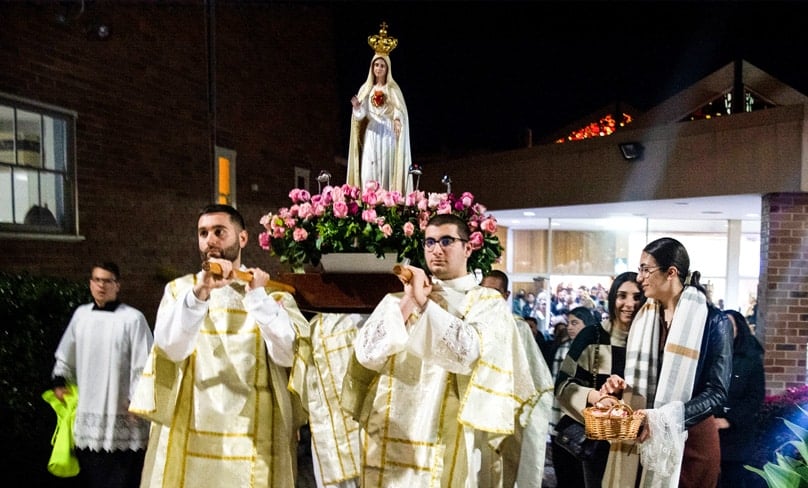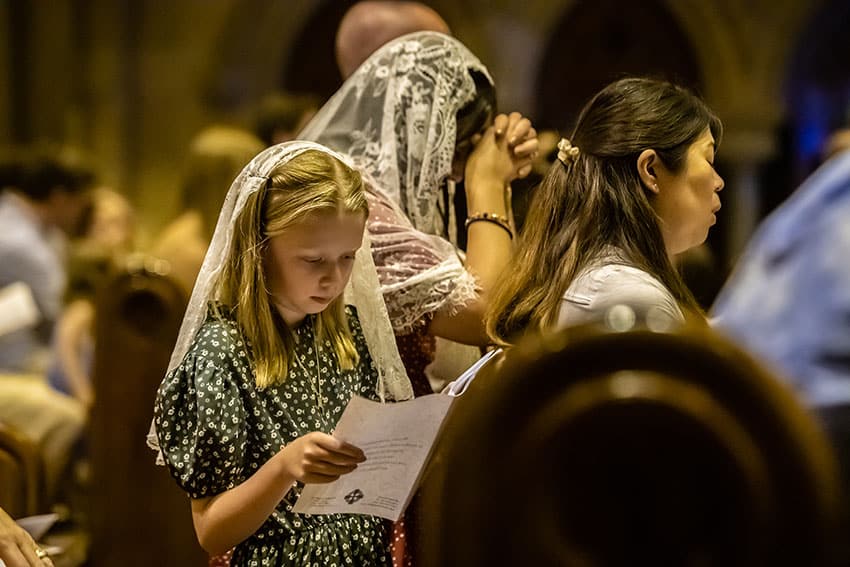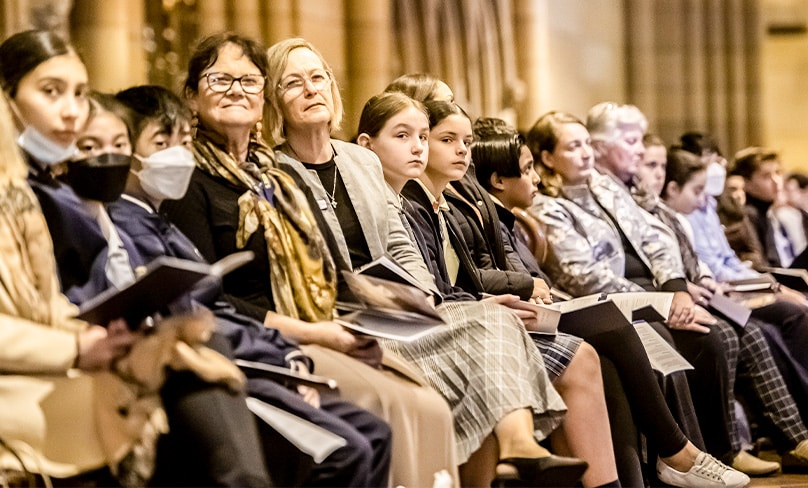
In Australia there is a group of younger Catholics under 40 who attend Mass every Sunday.
University of Notre Dame academic Stephen Bullivant and I asked just over 700 of them across Australia about why they’re still turning up every week.
We gave them a list of nine possible reasons and asked them to score each reason out of 100, after which we turned the scores into three categories: not important, fairly important, and very important.
The results are striking. A whopping 94 per cent of the younger massgoers identified that growing in their “relationship with Jesus in the sacraments” through the Mass was very important to them. Around 91 per cent also said that feeling “closer to God” through the Mass was very important.
Around 87 per cent rated “the need to receive the sacrament of Holy Communion” as very important to them. Another 79 per cent said that their enjoyment in “taking part in the service itself and experiencing the liturgy” was very important.
In other words, this group of younger regular massgoers attend church of their own free will because they want to worship God and have a living relationship with him in the sacraments.
Young massgoers were lukewarm about the other five reasons we proposed.
Far fewer of them ranked these as very important: finding the liturgy comforting (60 per cent), the fact that the church asks them to attend Mass (54 per cent), enjoying being with the other people at Mass (44 per cent), feeling connected to their family or the way they grew up (32 per cent), and pleasing other people like parents or spouses (just 7 per cent).

They’re not going out of habit, or because they’re scared of the dark, or scared of the church, or to keep their parents happy, or because all their friends go.
This makes sense when you realise that they overwhelmingly believe in God with no doubts about his existence (82 per cent). For around 60 per cent of them, the church is the most important part of their life.
Around 82 per cent of them also pray at least once a day. Around 57 per cent go to confession at least once a month. Three quarters of them think it’s very important that their children marry other Catholics.
Around two-thirds work in at least one formal role in their parishes. They’re mostly lectors (readers at Mass), altar servers, in the music ministry, or doing fundraising.
So they’re not just sitting there being “entertained” on Sundays. They’re actually putting their money where their mouths are by helping out in practical ways.
I’ve had people contact me and ask me where all these younger Catholics are, because they can’t see them in their own parishes. I can tell you that our group of around 700 are mostly clustered around big urban dioceses across Australia.
But you might be lucky enough to have just one or two massgoing Catholics under 40 in your parish. Keep a look out for them, and be sure to say hello.

It’s true that because they’re so spread out, they don’t look like much compared to the older Catholics. But put them together in a group like this and ask them some questions, and it’s amazing to see what comes out.
It’s also amazing how normal they look. They’re not what we might call “liturgy nuts” or strange fringe-dwellers.
These are very mainstream, ordinary Catholics of the kind everyone would have recognised 50 years ago as “practising Catholics.” We don’t tend to notice them very much because they are so very ordinary.
You might think that this group of younger Catholics is not worth worrying about. They’re clearly strongly involved in the church. Shouldn’t we spend more time thinking about the younger people who aren’t there?
Yes, we should. But we should also make a greater effort to include this group of highly engaged and active younger Catholics in church decision-making for the future.
It’s clear that they love God and are heavily invested in having a personal relationship with him through the sacraments, especially the Mass. They are also solid citizens who contribute to the church’s wellbeing at parish level.
We definitely need to stop editing them out, belittling their points of view, and dismissing them as reactionaries because they think differently about the church from the Boomer generation before them. That’s not a “listening church”, and it’s not synodality.
I’m glad we found this group of young Catholics in our survey, and there’s still more to learn about them. In the meantime, I think they deserve our thanks for sticking around when so many didn’t.
